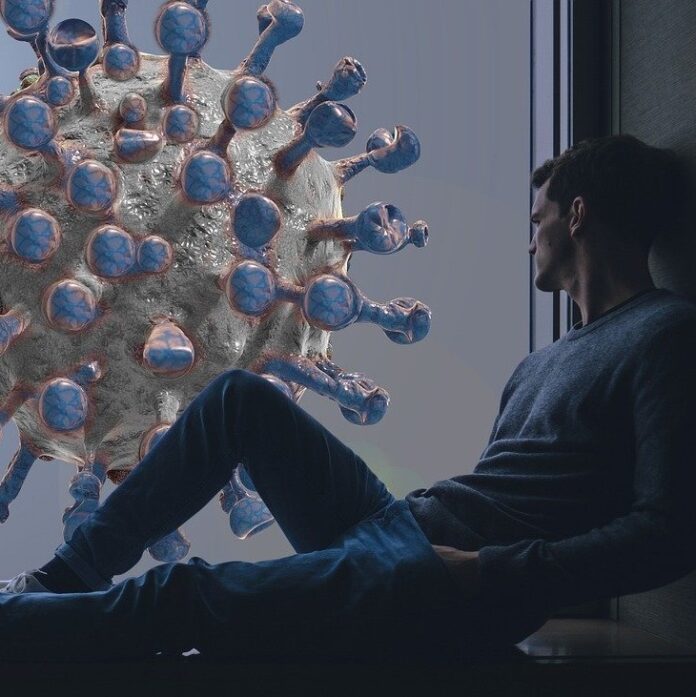People staying indoors due to the extensive period of lockdown could develop a wide range of symptoms of psychological stress like low mood, insomnia, anxiety, anger, irritability, emotional exhaustion, depression and post-traumatic stress symptoms.
By Balaji Subramanian
At the beginning of 2020, no one expected the world will be in such turmoil and our very homes will become our prisons due to Coronavirus lockdown. However, this was an essential, yet difficult measure to implement to break the COVID-19 infection cycle.
The world we now live in has forever changed and so have the rules of social interactions. But just because we have to make compromises does not mean we cannot overcome the situation. Our world has seen far worse than this and yet we continue to endure.
Amid global economic meltdown, and the growing prospect of recession, a new threat has emerged which is the physiological impact of lockdown on millions of people.
According to the World Economic Forum (WEF), some 2.6 billion people around the world are in some kind of lockdown that could lead to a secondary epidemic of burnouts and stress-related absenteeism in the latter half of 2020.
People staying indoors due to the extensive period of lockdown could develop a wide range of symptoms of psychological stress like low mood, insomnia, anxiety, anger, irritability, emotional exhaustion, depression and post-traumatic stress symptoms.
As per the National Institute of Mental Health and Neuro-Sciences (NIMHANS ), the Government of India has allocated only Rs. 50 crore for 2018-19 a small increase of a mere Rs 15 crore over 2017-18.
To have a better understanding of the impact of lockdown on people this author spoke to two leading clinical psychiatrist, Dr Janaki Rajagopalan and Dr Siddhika Ayyer.
Why is the lockdown so hard on people?
Dr Siddhika – We are all experiencing a sudden change in our lives – not being able to go out of our home at our will and not being able to do the things we are used to doing.
The lockdown has led to millions of people either not working or working from home, many being completely isolated from their families and staying alone while many being forced to be with their families for extended periods of time without a break.
Children are not able to step out and play, something that is taken for granted at their age. The fact that this lockdown comes at a time when a very serious threat of infection looms on our heads helps us understand that this is a “life-saving lockdown” – a situation that is much more palatable than lockdowns that happen as a result of violence as in warring areas.
However, the fear of contracting the virus when one steps out to buy essentials is very real and very anxiety-provoking.
Why do different people react differently to such a situation?
Dr Janaki – We all have different coping mechanism to deal with stress or trauma. It There are several ways in which this lockdown may be perceived by individuals based on their personality:
People who are very outgoing, active and out there may find it very controlling and harsh. For those who are introverted and like spending time at home, they may find it to be a welcome break from a noisy and overactive world.
People who are a mixture of the two which is probably the more common type of personality, will vary in their moods
The over thinkers and worriers will have a very difficult time trying to understand and analyse what may happen in the future, some worrying about a total collapse of the economy and post warlike states.
People who are not able to realize the seriousness of the situation and the changes that this will bring and the lives that may be lost, will push boundaries.
People with preexisting mental illnesses like depression and anxiety may deteriorate due to the pressure of social isolation.
Just the change of a regular routine can bring about an array of problems – like not feeling fulfilled, feeling non-productive, not feeling rested and not having space for themselves due to constant presence of the children apouse.
What can be done to help ourselves during this period?
Dr Janaki and Dr Siddhika
• Have a regular waking up and sleeping time – often people tend to oversleep when we don’t have a need to go somewhere and do something. I hear of children waking up at 10 and sleeping at 12 . This will lead to a feeling of being productive which will lead to low self-esteem.
• Workout at home daily. Do yoga. – staying active is very important and doing a workout in the morning hours helps in an active start to the day.
• Try dressing up well every-day and don’t stay in your nightclothes.
• Eat less than usual but cook/ eat interesting things – considering that we are all cooped up at home, we need less calorie intake than usual. But try to make the meal an interesting one. This will pick the spirits of the home right up. Also, try to include immunity boosters like lemon, amla, almonds etc in your diet.
• Try not to have a strict study routine for your child for the time being. Remember that they perceive our anxiety and maybe feeling anxious without knowing what the reason is. They should study but let them be relaxed in doing it.
• Screen time less than 2 to 3 hours for children – this one is very difficult to impose as they have very little other than watching tv and playing games but too much of screen time can contribute to depressive symptoms in children.
• Play board games with the family – play hide and seek – play any games together.
• Read lots of books – this will give a sense of being in touch with the world. Also, it’s a good way to pass the time.
• Pray and meditate – this will get you in touch with your inner self and give you the resilience to face what is yet to come. Surrendering yourself to a higher power helps feel a deep sense of peace and an acceptance of the fact that you can’t control what’s happening.
• Do your best to follow the recommendations given by the government.
• Try not to watch the news or read your WhatsApp forwards about corona all the time. Try to watch uplifting programs or comedies.
• Stay in touch with friends and family through social media platforms.
• Take it one day at a time and don’t plan too far ahead – do the best you can today for yourself and your family.
Although the lockdown will end soon but the psychological impact will remain with us for a very long time. Mental health is a taboo subject in India but it will be very important for all of us to show understanding and compassion to others.
It is important to educate people about the expected psychological impact and reactions to the lockdown and make sure people understand that a psychological reaction is normal.
Dr Janaki Rajagopalan and Dr Siddhika Ayyer are consultant psychiatrists and both have a keen interest in understanding the psychological basis of illnesses and in psychotherapeutic approaches. They have recently started their YouTube channel “Gray Matters” where they discuss different issues and their psychological basis.
Balaji Subramanian is a freelance writer who writes in the field of mental health, music and politics and tweets @LaxmanShriram78












